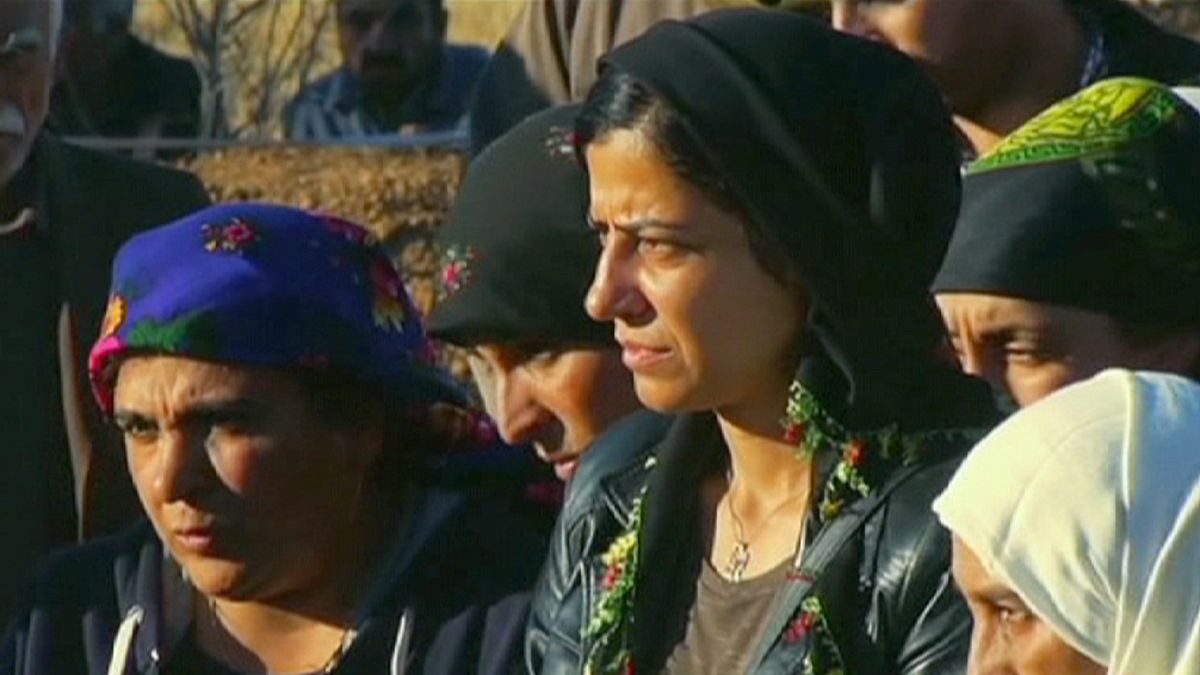For months, only the Kurds have been fighting Islamic State radicals (ISIL) on the ground, first in Iraq, also in Syria, notably in Kobani. Without them, even more territory would now be under ISIL’s control. Further than battling to ensure their own regional security and the safety of civilians, the Kurds stand to gain in other ways.
This war against the self-declared regional caliphate has galvanised the Kurds even as those on the Turkish side of the border with Syria bury those killed in the fighting so close to it in Kobani.
The Peshmerga forces of Kurdistan (the name means ‘those who confront death’) have opposed ISIL longest in Iraq. It is one of four countries which count big Kurdish populations. Since 2005, they have had political autonomy in Iraq, recognised by its constitution and by the international community.
The Kurds are spread throughout the world, especially in Europe, but they live mostly in Iran and Turkey, as well as in Syria and Iraq — in the region they total some 38 million. Iraqi Kurdistan lies in the midst of the region, and has other strong institutions other than military. It has increasingly earned respect from the outside world, not only because it enjoys oil resources.
The regional Kurdish President Massoud Barzani has promoted the valour of the Peshmerga and spoken about organising a referendum on the possibility of an independent country.
The Kurds thus have greatly increased their profile, to the point where powerful Western allies are now sending the Kurds in the conflict zone weapons and military advisors. Their actions and reputation certainly haven’t hurt any ambitions for statehood.
The interests of the various countries in which the Kurds live, however, make it far from simple. And so, they remain, for the moment, a people without their own state, with war driving hundreds of thousands of them to flee their homes.
Euronews spoke with Falah Mustafa Bakir, Head of the Kurdistan Regional Government Department of Foreign Relations, who was in Brussels during a diplomatic tour of Europe.
Alasdair Sandford, euronews: “Several governments have offered weapons in the fight against ISIL. What are you asking for now and what response are you getting?”
Falah Mustafa Bakir, Head of the Kurdistan Regional Government Department of Foreign Relations: “We are grateful for the governments who have provided military assistance and humanitarian assistance, but we want that support to be sustained and expanded in order for us to be able to fight ISIS (Islamic State of Iraq and the Levant – ISIL) and defeat them.
“We have made advances, we have regained territory, but in order to make sure that we continue with the successes we need sustained and expanded air strikes and heavy weaponry to be provided. And you have got a reliable partner on the ground, who are the boots on the ground, and who have proven to the rest of the world they can do it. Therefore, our call upon our friends in the international community is to please help us so that we can help ourselves and fight ISIL and defeat them.”
euronews: “Are you happy with Kurdish forces being the only forces on the ground doing all the ‘dirty work’, as it were?”
Bakir: “We’re proud that we’re fighting, on behalf of the free world, these terrorist organisations, but certainly to achieve the objectives in Iraq we need other partners as well.
“For fighting ISIL in the long run we have to have regional cooperation and also international cooperation. It’s not only fighting them on the ground militarily, but also in terms of intelligence sharing, stopping their logistical support, their finances, the economic support that they’ve got, the access that they have had. Therefore, we need partnership and we need cooperation from the regional countries and also from the international coalition as well.”
euronews: “What about Turkey’s stance? Is Turkey doing enough, as far as you’re concerned?”
Bakir: “We have to work together, but certainly the decision is for the Turkish government. Where do they stand, how do they do it? They [have] sought clarity from the international coalition regarding ISIL in Syria, but I believe that they are considering this issue seriously and we hope that there will be a united front from the international coalition and from the regional powers in dealing with this issue.”
euronews: “And what about the humanitarian situation? You’ve also talked about 1.5 million displaced people in Kurdistan, who have fled the violence and ISIL. What more do you need in terms of humanitarian aid?”
Bakir: “We have received 250,000 Syrian refugees in our region, and just recently we have received more than 10,000 who crossed the border from Kobani to Turkey, [and] from Turkey to the Kurdistan region. But, added to that, we have more than one million Iraqi internally displaced people (IDPs).
“We are under huge pressure. We are thankful to the UN agencies and programmes which have been active with us on the ground. We’re happy at the level of relations we enjoy with them. We’re thankful to the international NGOs who have become our partners thanks to the local Kurdish charity organisations; we need partners.
“First, we would like the federal government in Baghdad to move forward and share the responsibility with us, and we’re thankful to all the donor countries – especially the European Union, and the European Commission which has come forward to help the situation of the refugees and the IDPs, but we are facing a real challenge.
“Especially, we are approaching winter, and with thousands of people being in the open air, being in schools, being in unfinished buildings, this is a big challenge. We would be grateful for any kind of assistance that we got from the EU in order to help us, so we would be able to help them.”
